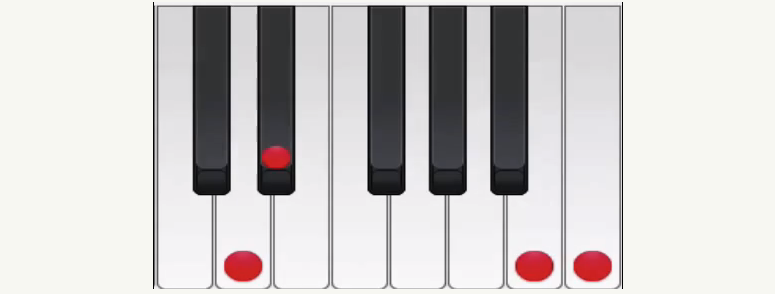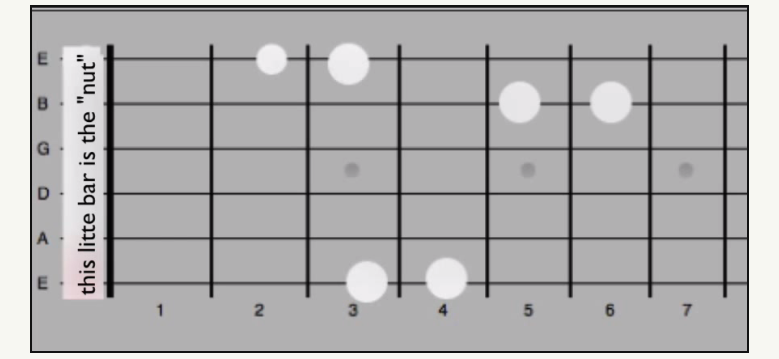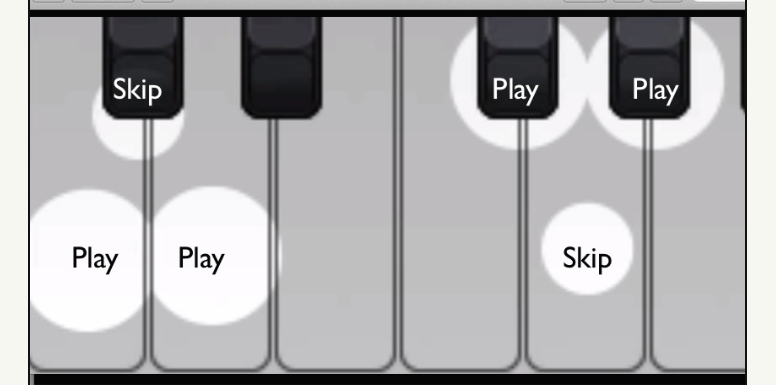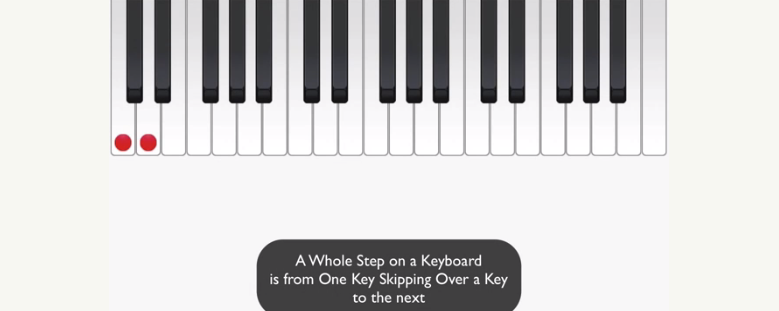Ear Training for the Mere Mortal
Don’t be afraid. I know I was when I first realised at Conservatoire that ear training meant I was going to have to “take dictation” of actual music by writing it out on actual staff paper. Even worse I was going to have to look at a piece of paper and somehow sing something that was remotely musical from those random dots on a page. I suck at singing! Let alone singing something based on looking at a page of ink splots! Enter the panic attack mode of body response. The internal AAAAAAghghgh!!!! …Screaming inside while the outside body tries to maintain some dignity and decorum through the dizziness and shaking. Shaking?...more like the planet earth getting detox tremors. All the time knowing full well that beads of sweat are about to be ripening on the vine of a quickly reddening flushed face AAAAAghghgh!!!!AAAAAghghgh!!!! I say...
Thankfully you my friend don’t have to go through this trauma. You may be at Uni and in the situation I was in and therefore have to go through the process but NOT the trauma. You may have been told at birth or at school that you are "tone deaf" and you just want to have a go at improving or beginning to get some musical "aural perception". Either way I can help.
If you already understand intervals go straight to the:
Progressive Customised Ear Training.
Ear Training for the Complete Beginner
In order to do this ear training malarkey you are really going to have to get to grips with some of the language used in the labeling of patterns in music. This is more often referred to as “music theory”. It is also much of the time neglected, disrespected and even hated or feared.
Remember (from Music Theory First Floor): "...at the end of the day every one has to have some grip on the theoretical if nothing else to communicate with other musicians. Communication between musicians is much of the time achieved by using the language and labelling provided by music theory. It's kind of like being able to give a few simple directions to a stranger looking for the local post office instead of having to 'take them by the hand' and physically show them the way"- See more at: https://www.playableguitar.com/music-theory-first-floor.html#sthash.D5C6phMm.dpuf
A Smidgeon of Ear Training Theory
If you want to just dive in and get started then all you need to get going is a few terms and their meanings. If you are already familiar with the terms below go straight to Progressive Customised Training.
Unison= two sounds together or sounded in series that are exactly the same pitch.
Half Step= two sounds together or sounded in series on any instrument that are exactly the same sound in pitch as one piano key to the next adjacent piano key...

...or one fret to the next adjacent fret on the same string of a guitar. (Also called minor 2nd)

Whole Step= two sounds together or sounded in series on any instrument that are exactly the same sound in pitch as one piano key to the next piano key when skipping over a key...

...or one fret to the next fret skipping over a fret on the same string of a guitar. (Also called major 2nd)

Major = generally speaking major means larger or ‘greater than’ minor.
Minor = generally speaking minor means smaller or ‘lesser than’ major.
Interval= a numerical value (Ex. C to D =the ordinal distance of 2 notes called a "second") that is then assigned a qualitative value (Major, Minor, Diminished Augmented or Perfect) for more accurate distinctions of distances between notes. For example:
The white C key on a piano keyboard to the white D key is a Major 2nd (1st to 2nd note of a C Major scale).This can also be called a whole step.

The white C key on a piano keyboard to the adjacent black D flat key is a Minor 2nd (the 1st note to the ‘lesser than’ 2nd note of a C Major scale). This can also be called a half step.

Progressive Ear Training Customised Exercises for Mortals
Many thanks to Ricci Adams at http://www.musictheory.net for sharing the resources from his wonderful music education site. Please visit and support musictheory.net
If you've had some experience with music theory or you have explored this site enough you can start your ear training journey here. Keep checking back and/or get hooked into my RSS feed for the updates additions and developments on this page and this site in general.
The First Ear Training Exercise: Unison or Not?
Try Major Seconds Thirds and Perfect Fourths
Familiar tunes Major Seconds's Perfect Fourth's and Major Sixth's
Happy Birthday, Frere Jaques = (M2) "Here Comes the Bride", Harry Potter = (P4) My Bonnie Lies Over the Ocean, Hush Little Baby (lullaby), NBC Chimes = (M6)
Five Six Seven eight Perfect 5th Major 6th Major Seventh Perfect Octave
The next exercise is all the notes of the Major Scale. Try to assign a fragment of melody for each pair of notes to help you as we did above. For example the Major Second sound (M2) is the beginning of 'Happy Birthday'. The Perfect Fourth (P4) is 'Here Comes the Bride' or 'We Wish you a Merry Christmas'. Find your own tags to help memorise the two note combinations of these "Simple Major Intervals" ("Simple" just means notes within one octave).
Remember to try playing all these sounds on your guitar. More direct guitar exercises will be added as this site grows. Thanks and Happy Playing folks!
ENTER YOUR E-MAIL ADDRESS FOR THE FREE GUERRILLA GUITAR TACTICS NEWSLETTER
I will keep adding melodic and harmonic exercises as well as tips, techniques and tricks but you can start with these ideas. As always go back and read or review material from the rest of this site. It is pretty much in chronological order. Even if you have some experience there may be a new point of view or shiny nugget to pick up along the way!
Home>Top>Go to Ear Training Step Two>click here to support this site
If you are local to the United Kingdom West Midlands Coventry Kenilworth Leamington Warwick Rugby Stoneleigh CV8 Post Code area and are interested in tuition feel free to arrange a “First session Free” Guitar or Theory Lesson. Perhaps you just want to *chat over a cuppa about the options for your children’s music education.
Playable Guitar
Rural Innovation Centre Unit 32 Avenue H
Stonleigh Park CV8 2LG +44 2476 998 500
International? Please contact me about Skype lessons. Se habla español – pues bueno un pocito!
click here to see other ways to support this site
Got suggestions or questions?
Want to try a free Skype or Zoom lesson?
Got a testimonial? click here
Click the link to the contact form above or write to me at the address shown and I will get back to you as quick as I can !
Happy playing!


